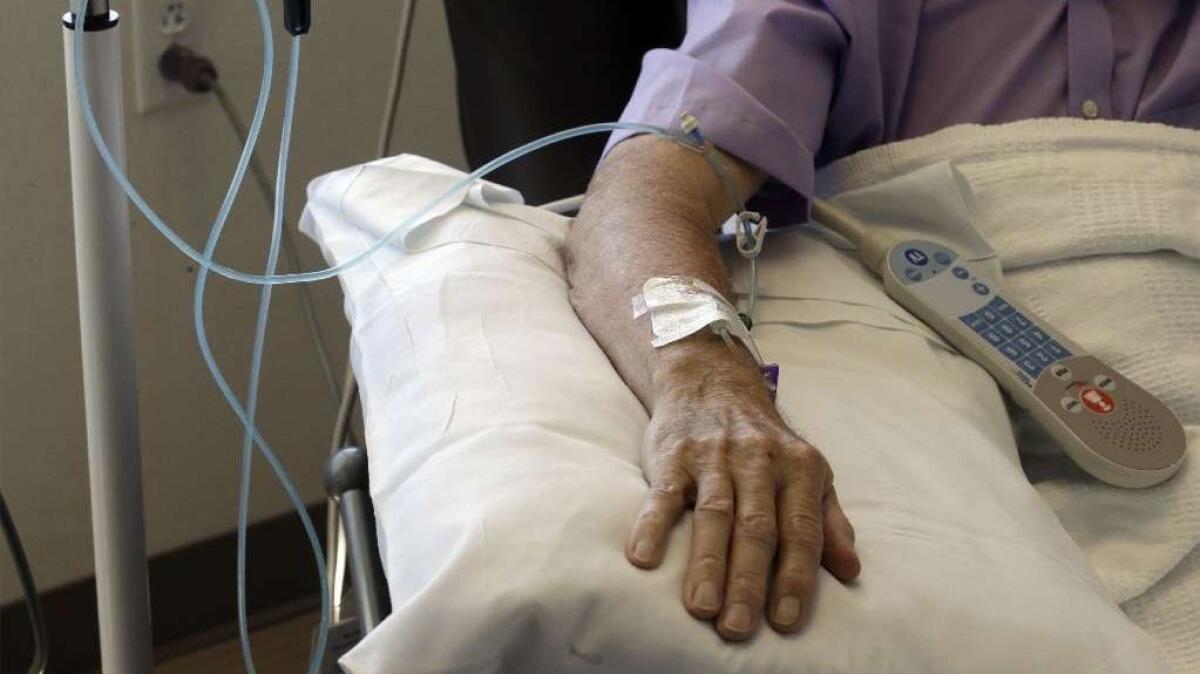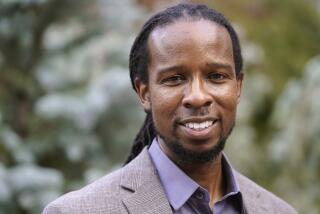Readers React: Cancer isn’t an ‘invader,’ and you’re not at war with it

- Share via
To the editor: I couldn’t agree more with Dr. Sunita Puri’s view that thinking about cancer as a battle is the wrong metaphor.
After being diagnosed with leukemia two years ago, I found I had to fight the fight metaphor. I woke up in the hospital each morning thinking about my cancer the way it is most often portrayed. The enemy had launched a surprise attack and breached my perimeter. I was under assault by my own blood-thirsty cells.
But war is devastating, even for the victor. It was obvious I couldn’t live in a perpetual state of siege. I came to the conclusion that the metaphor was wrong.
The millions of cancer cells inside me are not a marauding horde. They are an indigenous population. My cancer cells are me.
So, if not a battle, then what? I decided to think about my cancerous cells as local kids gone bad. I chose to picture them as biological toughs running amok in my bloodstream and bone marrow. I imagined them as basically good young cells who had lost their way.
By thinking of my cancer as a group of confused cells, I am using a metaphor based on empathy and compassion. Essentially, I am choosing to have empathy and compassion for myself. I am not in a state of war; I am in a state of healing, understanding and determination.
It works for me.
Robert Lindstrom, Glendale
..
To the editor: It was with relief that I finally read an intelligent, informed article concerning the popular and ill-informed tendency to view serious illnesses as battles to be “won” or “lost.” Puri’s wise article points out the inherent, serious problems that result from this pseudo-spiritual, militaristic approach.
The fight metaphor doesn’t allow patients to view their illnesses and treatments as having a biological basis; it prevents them from living their lives as fully and realistically as possible.
In the 1980s and ’90s, when I worked as a therapist with hundreds of patients ill with HIV/AIDS, this binary point of view prevented many patients from focusing on the joy, fun or relationships that were available to them. They died feeling guilty about someone not being strong enough to fight.
This misguided approach continues to this day, as Puri so eloquently and compassionately points out.
Miriam Davis, North Hills
..
To the editor: In his prayer, Pierre Teilhard de Chardin, the French Jesuit priest and paleontologist who took part in discovering Peking Man, said this: “O God, grant that I may understand that it is you who are painfully parting the fibers of my being in order to penetrate to the very marrow of my substance and bear me away within yourself…. Teach me to treat my death as an act of communion.”
As a human being, Christian or not, “letting go” and accepting may take more courage than “fighting.”
Kee Kim, La Habra
Follow the Opinion section on Twitter @latimesopinion and Facebook
More to Read
A cure for the common opinion
Get thought-provoking perspectives with our weekly newsletter.
You may occasionally receive promotional content from the Los Angeles Times.









